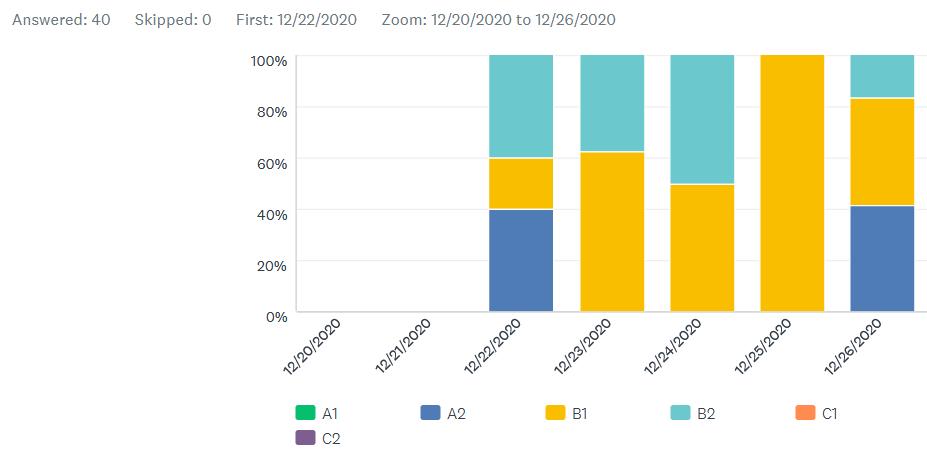
2 minute read
2.3 Working with the Course Participants
by iatefl
2.3.1 Positivity
As can be seen in the individual reports, the experience of working with the course participants was an overwhelmingly positive one. The levels of commitment to the courses, in spite of the sometimes-considerable difficulties brought by accessibility and availability, were commendable.
Many responded with great imagination and engagement.
Figure 2: A course begins in Argentina

Figure 3: Making marble runs in Palestine
Many projects identified ways that the experience was improved both by and for the CPs.

Figure 4: A virtual Carnival
2.3.2 Expectations
Inevitably, CPs brought expectations to the course which were not always realistic. These ranged from content to the amount of face-to-face tutor support, and many of the project reports identified the importance of clarifying expectations of CPs early on, in order to ‘ensure a positive understanding of the scope and type of provision they will receive’ (ARU/ANPI). A point of learning for many of the projects is that this might be best identified with the ETA partner with clarity at the recruitment stage, before the course begins.
2.3.3 Learner training
Linked to this area of expectations, a number of projects raised the importance of early learner support for the use of whatever platforms or technologies might be used. ‘For future projects of this kind, we would recommend including induction videos in both English and the CPs’ L1, which clearly explain the format of the course and demonstrate the online tools used’ (Lewis School/HELTA). In some cases, teaching and learning approaches needed development support and tutors ‘needed to use the first few sessions ‘training’ the CPs to be communicative learners themselves’ (IH London/ CINELTA). Across the board, where possible the projects which were able to include some form of induction session for the CPs before the course started found this to be highly recommended. In addition, it would be useful to ‘build in ‘orientation’ time between welcome webinar and the course start date to allow time for CPs to join social media groups, etc.’ (Bell/BRAZ-TESOL).
2.3.4 Encouraging participation
Along with the noticeable commitment of many ofthe CPs, many of the projects acknowledged that the numbers of participants tended to drop off over the course. A number of reasons have been identified for this, including the beginnings of school semesters, changes to work timetables, difficulties in internet access, etc. This issue became the focus of a CoP session and a number of strategies can be recommended: 1. Maintain a high level of provider engagement in the early part of the course:
‘We saw an increase in participation when teachers made use of WhatsApp with weekly reminders, videos and informal exchanges’ (Lewis School/HELTA)
‘Ensure robust interaction in the four class WhatsApp groups, particularly in the first month of the course’ (IH Bristol/APC-ELI)










